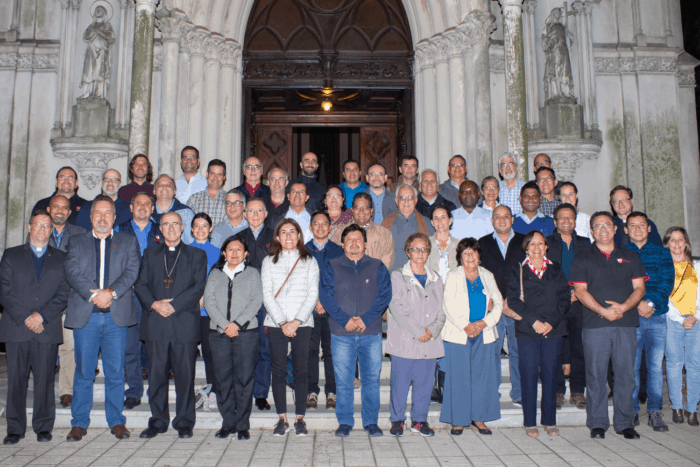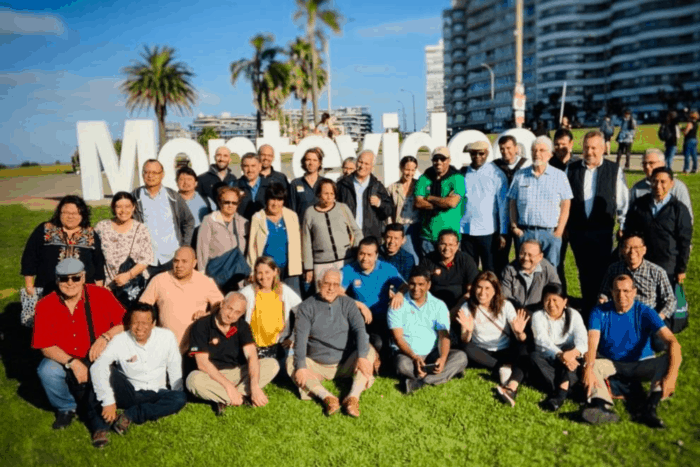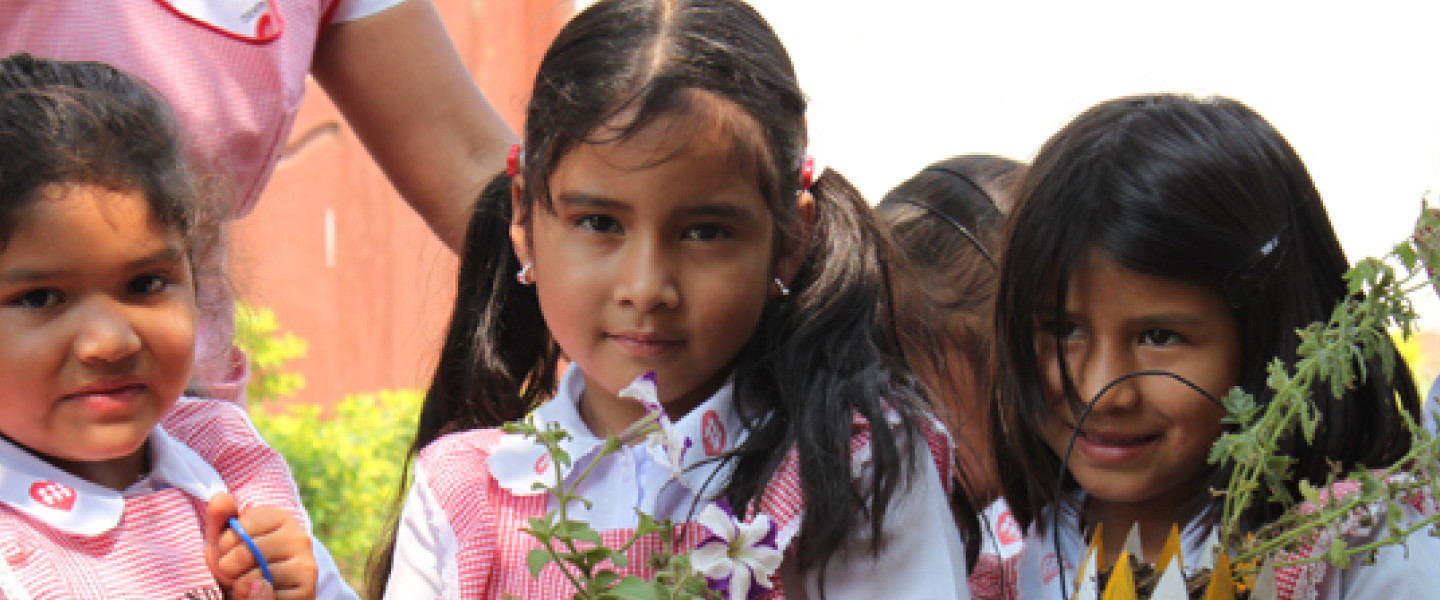
From April 4th-5th, 2019, the 34th Annual Assembly of the International Federation of Fe y Alegría Federation was held in Montevideo, Uruguay.
Throughout the first day, participants discussed the “Challenges for Fe y Alegría in light of the Universal Apostolic Preferences of the Society of Jesus”, and then continued with the “Educational challenges and relevant responses in contexts of poverty”, moderated by Carlos Vargas, director of FyA Ecuador and member of the board of directors of the FIFyA.
For Federico Rodríguez, Director of the National Institute of Educational Evaluation (INEED) Uruguay, “the quality of education must be improved with an emphasis on equity and utility for young people”.
Fr. Carlos Fritzen, General Coordinator of FIFyA, invites us to “go beyond the school and enter into encounter with communities, re-read contexts in light of our lessons learned to offer pertinent answers at the local level with a global vocation. And let us be inspired in this task by the Universal Apostolic Preferences of the Society of Jesus.”
An audio was shared that accompanied the presentation of Father Alfred Kiteso SJ, director of FyA in the Democratic Republic of Congo and Coordinator of the Africa and Madagascar Commission, who could not arrive due to visa issues. Father Kiteso shared with us “a vision from this new African frontier, education is the basis for the development of people and communities. Without education there is no progress or autonomy, and it must be equal for both boys and girls, beginning with literacy.”
Beatriz Borjas, consultant of the International Federation, closed the round of presentations emphasizing that “in vulnerable contexts people continue to believe in and value school.” And she focused her talk on the crisis in Venezuela, “as the end of the era of fossil fuels and the emergence of new energy models…education should be reread … taking into account the violence and murder of socio-environmental leaders and forced migration.” In the global context, she invited us to “redesign popular education by criticizing the predatory development model and by promoting the creation of a model of global citizenship and inclusion, with the ability to put ourselves in the shoes of others, revising our educational proposal that oftentimes reproduces the prevailing system in many ways, to move away from the reproduction of the system to the creation of a new form of relationship, taking care of safe spaces such as schools and educational environments.”

After reading these reflections on the current challenges of education in contexts of poverty, what do you think and feel?
With texts from Gerardo Lombardi, Communications Coordinator at the International Federation of Fe y Alegría

